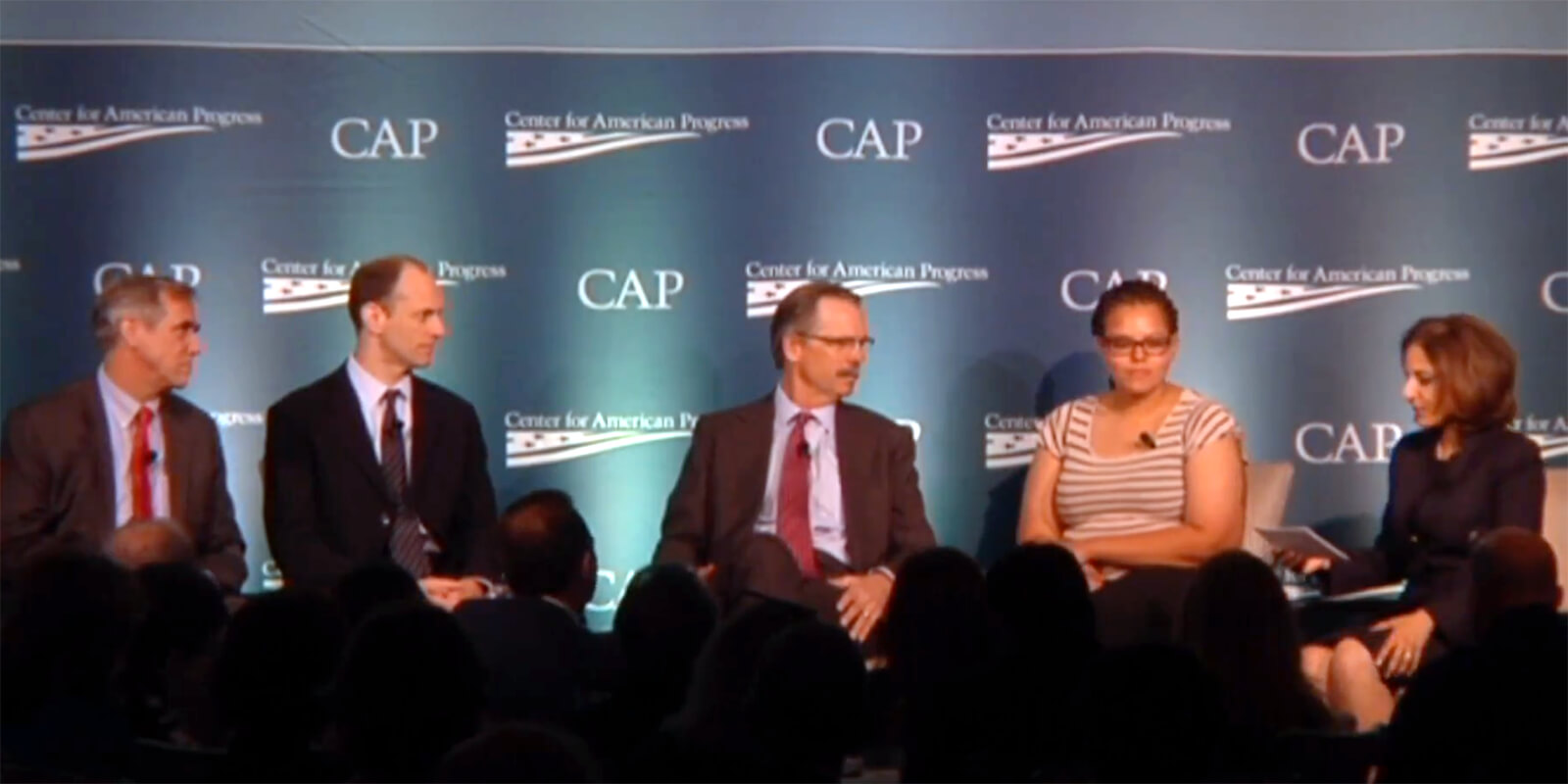
When Lindsay Washington decided to become an emergency medical technician (EMT), she thought only of how she would be able to help others. She never expected having to fight to help EMTs like herself gain dignity and respect on the job – but that’s exactly what happened.
Washington, 26, is one of AFSCME’s newest members. More than that, she helped build a union with AFSCME District Council 20 in Washington, DC. In March, a majority voted ‘yes’ for AFSCME representation, meaning that today, approximately 250 EMTs and paramedics have a voice on the job and a seat at the table with management. They are now looking forward to negotiating their first union contract.
Washington told her story to a national audience today as a member of an economic-policy panel hosted by the Center for American Progress (CAP). The panel, part of the progressive think tank’s “2017 Ideas Conference,” was convened as basic American rights (such as collective bargaining) and values (such as respect for workers’ rights) are under attack like never before.
“We decided to organize because we had three main issues – we wanted fair pay, fair scheduling and working equipment,” Washington said during the panel discussion. “We are our patients’ primary providers. Without working equipment, we cannot give them the best care possible.”
Washington goes to work every day to help people in need of her life-saving expertise.
Only, instead of focusing just on her job, she found herself worrying about how to prevent management from playing favorites with employees, how to enforce workplace standards and how to get her private employer, American Medical Response (AMR), to improve the equipment they depend on, like their ambulances.
Washington and her co-workers decided last winter to form a union with AFSCME to improve the services they provide. Management resisted.
“They sent letters to everyone’s houses” telling them why they shouldn’t join a union, she recalled in a recent interview. They even distributed wristbands that urged them not to join a union so they wouldn’t have to pay dues.
But those tactics didn’t work. Creating their own Facebook page, the workers explained the reasons why a union made sense. In March, they voted overwhelmingly to form their union, and Washington wants to become a steward so she can continue advocating for her co-workers.
